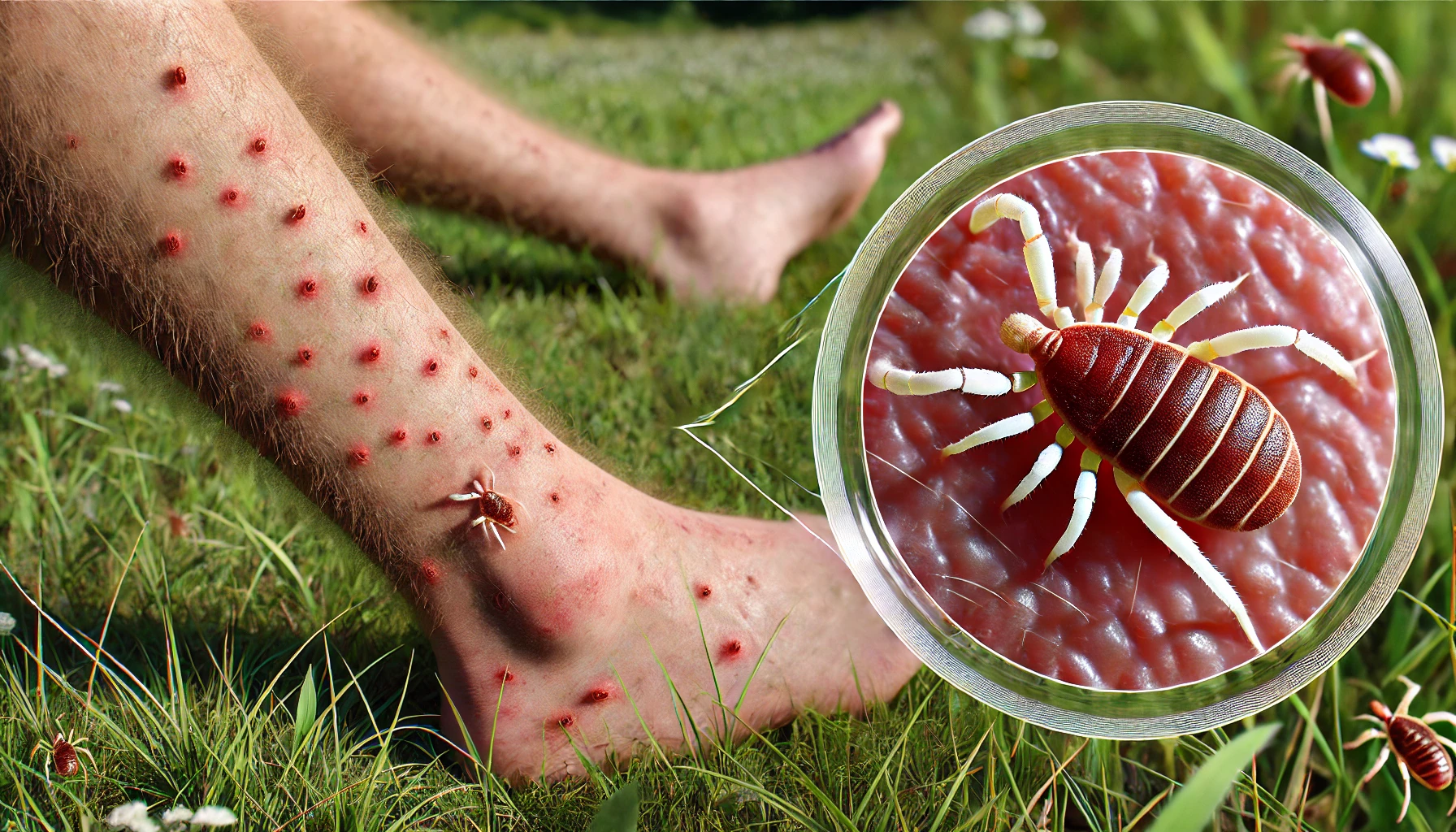Check out this answer from Consensus:
Chigger bites, while often self-healing, can cause significant discomfort due to intense itching and inflammation. Effective treatments include topical antipruritics, oral antihistamines, topical corticosteroids, and cold compresses. Preventative measures such as covering the skin and using DEET-containing products are essential to avoid bites. Understanding the symptoms and appropriate treatments can help manage and alleviate the discomfort associated with chigger bites.
By following these guidelines, individuals can effectively treat and prevent chigger bites, ensuring a more comfortable and itch-free experience.
Chigger bites, caused by the larval stage of mites from the Trombiculidae family, can lead to significant discomfort due to intense itching and inflammation. Understanding the appropriate treatment methods is crucial for alleviating symptoms and preventing complications. This article provides an overview of effective treatments for chigger bites based on recent research findings.
Symptoms of Chigger Bites
Chigger bites typically result in pruritic erythematous papules and papulovesicles, which are self-healing within a couple of weeks. Common symptoms include intense itching, localized inflammation, and irritation2 3. In some cases, severe reactions such as the summer penile syndrome can occur, characterized by acute hypersensitivity reactions, pruritus, and edema4.
Immediate Relief Measures
Topical Antipruritics
Topical antipruritics are commonly used to provide symptomatic relief from the itching caused by chigger bites. Ethyl aminobenzoate in flexible collodion has been reported to offer significant relief, providing a numbing effect that lasts for four to eight hours1. This treatment is particularly useful for enabling sufferers to sleep and maintain comfort during the healing period.
Oral Antihistamines
Oral antihistamines are effective in controlling itching and reducing allergic reactions. They are often recommended for managing the symptoms of chigger bites, especially in cases of severe pruritus4 5.
Topical Corticosteroids
Topical corticosteroids can be applied to reduce inflammation and itching. In severe instances, an intralesional triamcinolone acetonide injection may be administered to provide more substantial relief2 3.
Cold Compresses
Applying cold compresses to the affected area can help reduce swelling and provide temporary relief from itching and discomfort4.
Preventative Measures
Preventing chigger bites is the best approach to avoid the associated discomfort. When traveling in areas known to be infested with chiggers, it is advisable to cover the skin completely and apply products containing DEET to both skin and clothing2 3. Additionally, avoiding areas with high grass and dense vegetation can reduce the risk of exposure.
Special Considerations
Treatment of Secondary Infections
In some cases, secondary infections can occur if bacteria are trapped under the skin. If a small bleb filled with seropurulent fluid develops, it should be drained and treated with a 2% aqueous solution of methylrosaniline1.
Seasonal and Demographic Factors
Chigger bites are more prevalent during certain times of the year and among specific demographic groups. For instance, a study in Iran reported higher infestation rates among children aged 4-14 and during the months of July, August, and September6. Awareness of these factors can help in taking timely preventative measures.
